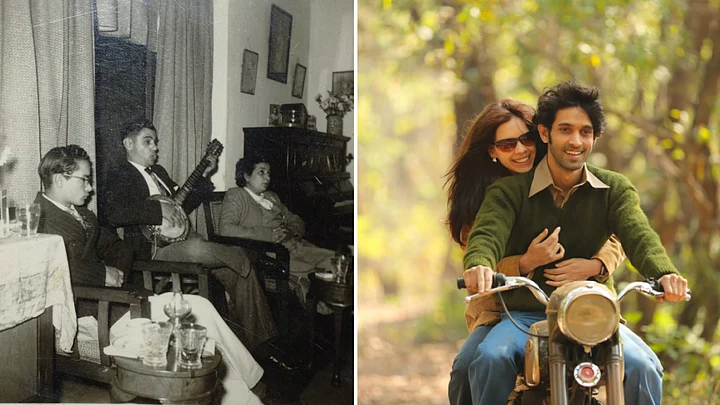Of late, there’s lots happening in my hometown of McCluskiegunj.
The recently released movie, A Death in the Gunj (Konkona Sen Sharma’s directorial debut) was filmed here and has trained the spotlight back on the country’s only Anglo-Indian settlement, 80 years post its establishment.
However, what piqued my interest was the newly-laid highway which connects Ranchi, the capital city of Jharkhand, with ‘the Gunj’, the name by which we refer to our hometown.
As I took my first stroll down the glistening tarmac, its freshly painted white markings, the neon signboards and the arrows that appear out of place amidst the foliage of Sal, Flame of the forest, Gulmohar and Mahua trees, I realised that it didn’t feel like I was walking down the same road I’d skipped along during my schooldays.
It’s also a stark contrast to the once eroding, potholed, old dirt road of the 50s that would choke with dust after Dr P Badell’s horse had trotted by, on his visit to attend to a patient’s call....
Of New Roads and Few Animals
The previous evening, at a neighbour’s house, a bunch of beaming tourists raved about how conveniently quick the new road was. Supposedly, it got them from Ranchi to the Gunj – a whole 62-km-commute – in an hour-and-a-half. That’s astounding, when compared to the sluggish six hours it would take my grandfather in his black ambassador.
So, hoping to spike their enthusiasm a little further, I asked if they’d come across any wild animals on the way. Their eyes widened. For most tourists those might just be myths. However, in the mid-70s, on many a journey to Ranchi (where our parents headed whenever they had to stock up on groceries and toiletries), they’d be forced to halt their cars and allow a hare or a fox to trot across the road! Not to mention the larger species of wild cats that didn’t need their permission.
I too hadn’t seen a cheetah or a leopard and my tryst with those gory encounters was on lazy winter mornings, sprawled out on a grass mat beneath the neem tree in our garden, reading Jim Corbett. There were other times too when, huddled around a crackling bonfire in the pitch dark, when the rising sparks magically turned to stars, I listened to stories by my father and his friends about having to carry their guns to the Easter Ball, just in case a villager summoned them for help. This, because the sahibs – “a term the locals used for Anglo-Indian gentlemen”, were officially given guns by the government authorities to protect themselves from wild animals.
When Housie Evenings Made Way for the Internet
It isn’t only the retreating wildlife that has begun to mark the onset of urbanisation. Some of the ways are more subtle.
Popular pot-puris and housie gatherings have given way to evenings spent watching television serials on cable network or socialising on the internet – something founder ET McCluskie couldn’t have pictured in the early 1930s when he conceived the dream of this settlement. He’d taken into account the adventure-loving lifestyle of the community when choosing this location – a lush forested land, complete with rivers, hills and wild animals in the heart of Jharkhand’s Chotanagpur plateau. At the time, being of European descent was the only eligible criteria according to the The Colonization Society of India for acquiring a piece of this paradise.
My family, both from my maternal and paternal sides, were among the first inhabitants who came here, bought bungalows with enormous high roofs and huge verandahs, a pretty chabutra (which is a cemented circular seating) in the garden area, planted orchards, bougainvilleas and settled down to a languid lifestyle.
They resisted the lure of open immigration post India’s independence, unlike many who ditched their fully furnished homes and set off to England and Australia leaving behind a handful of the original settlers. And now, when they visit their ruined homes, they rue that it’s not the same old Gunj.
A lot has changed in the Gunj and lots more will, in the future. Even more quickly since the new road has opened up a quick corridor to places far off.
The last time I visited, like always, I carried out a chair, put it out on the chabutra and waited to hear the familiar evening sounds I had come for. Silence took a while longer to descend and the strain of the gramophone had a hard time pushing through the din of heavy vehicular traffic that has also smothered the shrill of the cicadas. I tuned my senses further and only then caught snatches of chatter of my family and neighbours over tea and cakes.
Strangely and comfortingly, the distinct aroma of freshly baked biscuits seemed to waft through the the air – despite the hearth of Mrs Kearney’s bakery having long gone cold.
As the years roll by and new roads lead to new destinations, there will always be one lane that leads to the heart. Down memory lane some things will remain forever the same.
(Lesley D Biswas is a freelance writer who writes articles on parenting, environment, travel and women, besides fiction.)
